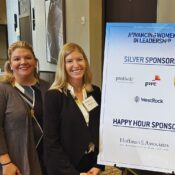Defined Value Gifting Validated in Wandry v. Commissioner!
Hoffman & Associates has used defined value gifting as a way to reduce valuation risk in gifting hard to value assets since the early 1990s. The idea is that a taxpayer should be able to gift a defined value amount of an asset rather than a fixed percentage of an asset.
The IRS has long contested the use of defined value clauses as against public policy because they reduce the IRS’ incentive to contest asset valuations. In the case of Joanne M. Wandry, et al. v. Commissioner, T.C. Memo 2012-88 (March 26, 2012), the Tax Court took the defined value gift issue head on and found the IRS arguments unpersuasive.
Mr. and Mrs. Wandry owned LLC units of Norseman Capital, LLC. An independent appraiser determined that the value of a 1% interest in the LLC was worth $109,000. Mr. and Mrs. Norseman desired to gift to their children and grandchildren defined value amounts of the LLC as follows:
|
Name |
Gift Amount |
|
Kenneth D. Wandry |
$261,000 |
|
Cynthia A. Wandry |
$261,000 |
|
Jason K. Wandry |
$261,000 |
|
Jared S. Wandry |
$261,000 |
|
Grandchild A |
$11,000 |
|
Grandchild B |
$11,000 |
|
Grandchild C |
$11,000 |
|
Grandchild D |
$11,000 |
|
Grandchild E |
$11,000 |
|
Total Gifts |
$1,099,000 |
The Wandrys executed assignments to their children and grandchildren with defined value amounts and containing the following adjustment clause in case the IRS later found that the LLC was improperly valued by the appraiser: “the number of gifted [LLC] units shall be adjusted accordingly so that the value of the number of units gifted to each person equals the amount set forth above”.
In the years following the gifts, the Wandrys’ gift tax returns and the LLC income tax returns reported the children and grandchildren as an owner of a percentage of the LLC. So each child reportedly owned a 2.39% ($261,000/$109,000) and each grandchild reportedly owned a .1% ($11,000/$109,000) interest.
Years later, the IRS audited the gift tax return and found that a 1% LLC interest was, at the time of the gift, actually worth $150,000. The IRS disregarded the defined value clause in the assignment, arguing that it is against public policy because it’s enforcement would virtually eliminate the incentive for the IRS to audit valuations of gifted property. The IRS concluded that because the tax returns reported that the children owned a 2.39% interest, that must be the amount gifted to them. And if a 2.39% LLC interest was gifted, then the value must be $385,500 (2.39% x $150,000) rather than $261,000. The result of the audit was a taxable gift in excess of the Wandrys remaining lifetime gift tax exemption.
Mr. and Mrs. Wandry and the IRS eventually stipulated that a 1% interest in Norseman was worth $132,000, but the issues of whether the defined value formula clause and the adjustment clause were enforceable went before the Tax Court. The IRS argued that the gift tax returns and the income tax returns were admissions of the transfer of fixed percentages. It also argued the adjustment clause was void for federal tax purposes as against public policy on the grounds that it was a condition subsequent to completed gifts. The taxpayers argued that the assignments only transferred defined value amounts (not percentages) and that public policy concerns regarding the adjustment clause did not apply because the value was set on the date of the gift.
The Court found that the taxpayers’ intent and actions proved that only the dollar amounts of gifts were intended and that the public policy arguments regarding the adjustment clause were without merit. As such, the Tax Court validated use of defined value formula gifts as an estate planning technique for reducing exposure to later valuation adjustments by the IRS. This case was a big win for the Wandrys and for taxpayers and estate planners around the country.
If you need help with your estate plan or would like to learn more, please do not hesitate to contact us at (404) 255-7400.
Author
-

Joe joined Hoffman & Associates in 2000 and became a partner in 2007. He is licensed to practice law in Georgia, Florida, North Carolina, and Ohio and is also a Certified Public Accountant. Joe serves clients in the areas of estate planning, corporate law, employment law, mergers and acquisitions, succession planning, income and estate tax planning, and tax controversy.
Recent Posts
All Categories
Tags
Get a Free Consultation
Call us today to discuss your issue.




